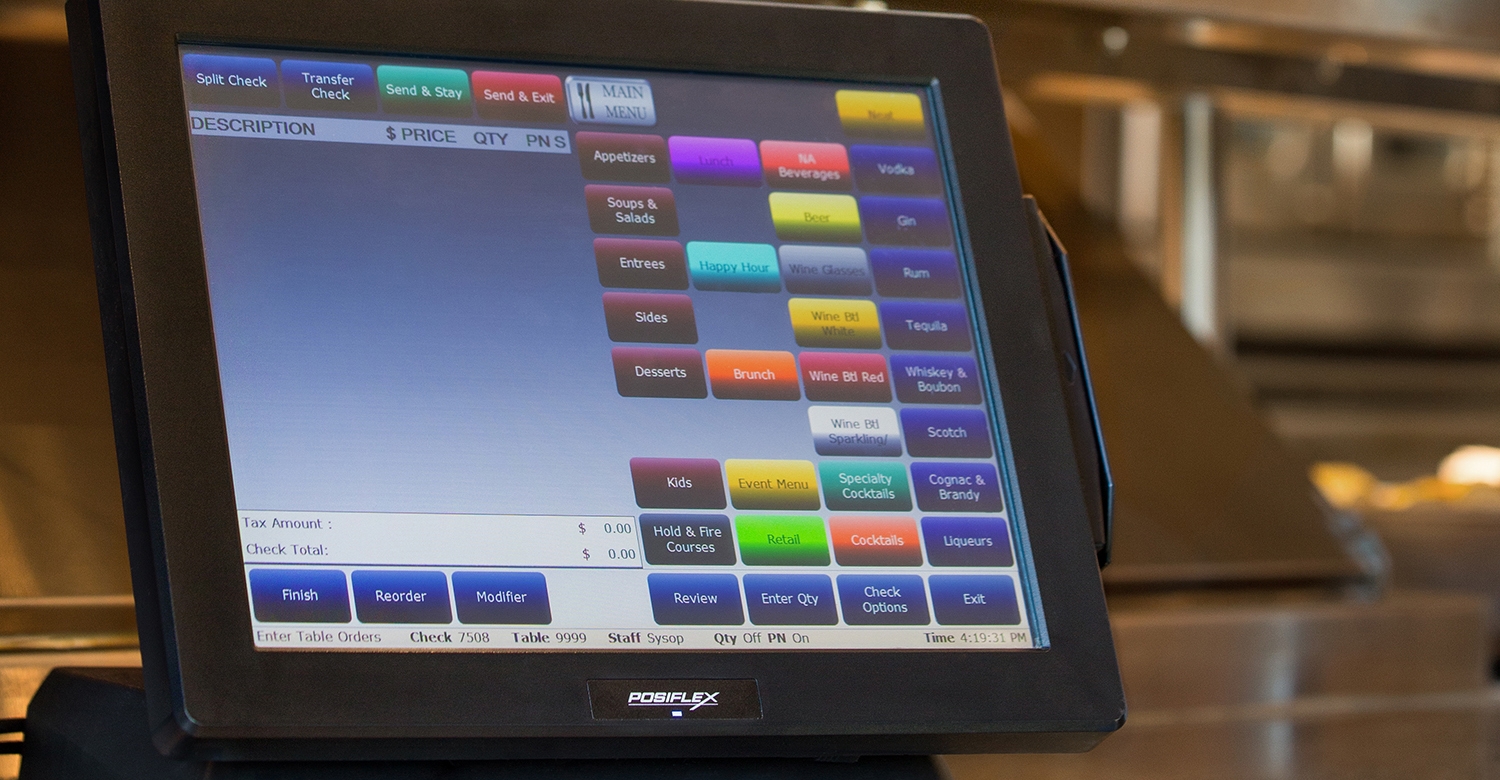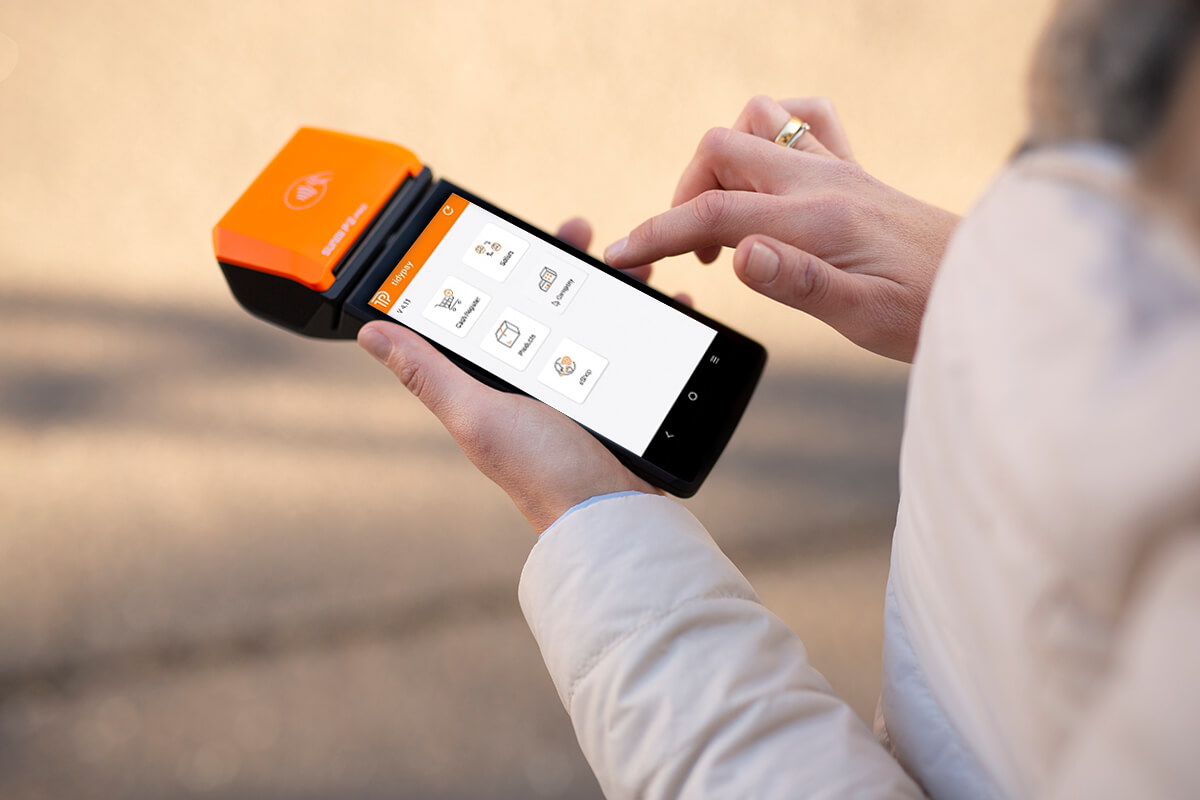Getting My Pos System For Small Business To Work

Point of Sale Systems: Retail Point-Of-Sale Solutions Streamline Deals
The 6-Second Trick For Pos

Hardware Components of a Point of Sale System What makes a POS system tick? It's not just software application; the hardware plays a starring role. Think about it as the body to the software application's brain. Without the ideal hardware, even the most advanced POS software is simply a quite face. Vital POS Hardware So, what are the must-haves? Let's break it down. The central processing unit, often a computer or tablet, is the heart of the operation. The display or touchscreen show allows staff to interact with the system. A barcode scanner speeds up the checkout process. Keep in mind the days of manually going into each code? The reliable invoice printer offers customers with a record of their purchase. A money drawer keeps your cash safe and organized. A card reader allows customers to pay with credit or debit cards. Diving Deeper: Beyond the Fundamentals However wait, there's more! Depending on your company, you might need specific hardware. A dining establishment may incorporate kitchen area printers to relay orders, while here a retail store may utilize label printers for product tagging. Ever question how your local bakeshop instantly prints those delicious-looking labels? Selecting the Right Hardware: A Balancing Act Picking the ideal hardware isn't simply about buying the most expensive equipment. It has to do with finding the sweet area in between functionality, sturdiness, and budget plan. A small company simply starting out may choose a more standard setup, while a high-volume retailer will require robust, high-performance devices. Is it better to buy brand-new or utilized? Consider your choices carefully. A new system provides the current innovation and guarantee defense, but a refurbished system can save you cash. The Future of POS Hardware What does the future hold? Expect to see a lot more integration with mobile gadgets, biometric scanners for employee authentication, and advanced analytics dashboards displayed on larger, clearer screens. Envision a world where inventory is immediately updated in real-time as products are scanned-- a world where you can track your best-selling product from throughout the world. The possibilities are limitless, and the hardware is continually developing to satisfy the demands these days's services. Are you prepared to upgrade your point of sale system?
Software Characteristics and Capabilities: The Heart of Your POS System
Ever enjoy a seasoned barista glide through a busy morning rush? Their secret isn't simply caffeine; it's a smooth dance with their POS system. The software application is the conductor of your business symphony, managing everything from sales to inventory. What notes should you be listening for? What abilities truly matter in today's market?
Inventory Management: Beyond Counting Beans
Forget spreadsheets that haunt your dreams. Modern POS systems provide real-time inventory tracking, informing you when your stock of artisanal coffee beans dips precariously low. Think of it as a digital guardian angel, avoiding those uncomfortable "Sorry, we're out!" moments to consumers. What if you could also forecast demand based upon historical data? Many systems now use forecasting tools, a powerful weapon versus overstocking and lost sales. This assists prevent the predicament of lacking popular products or accumulating excess inventory of slow-moving products, both of which can constrain cash circulation and space.
Sales Reporting and Analytics: Translating the Information
Sales information is the brand-new gold, and your POS system is the miner. Forget feeling in one's bones how much you offered today. Dive deep into the information to discover patterns, determine your very popular products, and understand consumer habits. Which menu item pairs completely with the everyday special? Which promotion resonated most with your clients? These insights are not simply intriguing; they're actionable intelligence. Without reputable sales reporting, navigating the complexities of service decision-making becomes like sailing without a compass, increasing the opportunity of bad moves and missed chances.
Client Relationship Management (CRM): Building Bridges, Not Walls
Remembering a routine customer's name and preferred order is charming, but scaling that individual touch is difficult. POS systems with CRM capabilities enable you to track consumer purchase history, choices, and even birthdays. Imagine instantly using a discount on their birthday-- a small gesture that fosters commitment and motivates repeat company. There is the prospective snag of poor data quality, which can lead to unreliable client profiles and ineffective marketing efforts.
Payment Processing: Improving the Deal
The checkout experience can make or break a sale. Seamless combination with numerous payment methods-- charge card, mobile wallets, even copyright-- is non-negotiable. Can your system manage split payments? Does it offer safe tokenization to safeguard customer data? A cumbersome payment process resembles hitting a sour note in your service symphony, possibly interrupting the entire efficiency. Guaranteeing compatibility with developing payment innovations and adherence to security standards are vital for preserving customer trust and operational performance.
Worker Management: Keeping the Team in Sync
From clocking in and out to managing approvals and tracking performance, worker management features simplify operations and enhance responsibility. Is scheduling a headache? Lots of POS systems offer integrated scheduling tools, enhancing staffing levels based on predicted need. A common challenge that is often ignored is the difficulty of integrating staff member management performances with payroll systems, which can lead to mistakes and inefficiencies in wage calculations.
Advanced Characteristics: Leveling Up Your Operations
- Table Management: Suitable for restaurants, this function permits you to envision your dining space, track table status, and handle appointments.
- Commitment Programs: Reward your best customers and motivate repeat company with integrated commitment programs.
- Online Purchasing Combination: Flawlessly incorporate your POS system with online purchasing platforms to broaden your reach.
Picking the right POS system is about more than simply functionality; it's about discovering a partner that can grow with your company. Consider your present requirements, prepare for future development, and don't be afraid to ask the tough questions. The ideal software application can change your service from a disorderly cacophony into a harmonious masterpiece.
Industry-Specific POS System Applications
Consider the regional bakery, dynamic with morning clients craving fresh croissants. A generic POS system might manage transactions, but can it handle intricate dishes, track active ingredient stock, or immediately adjust production schedules based on sales data? Probably not. That is where the charm of industry-specific POS systems shines.
Restaurants and Hospitality
For dynamic restaurants, speed and accuracy are critical. How many times have you seen servers handling orders, adjustments, and splitting expenses, all while attempting to offer excellent service? A dining establishment POS system enhances these processes, enabling table management, cooking area order tickets, and even online purchasing integration. These systems frequently consist of features like ingredient-level stock tracking, important for handling food expenses and reducing waste. Ever wonder why your favorite dish is often unavailable? It might come from a lack of appropriate stock management.
- Table Management
- Kitchen Order Tickets
- Online Buying Integration
- Ingredient-Level Inventory Tracking
Retail Solutions
Retail, with its diverse stock and client interactions, demands a different set of tools. Think of a boutique clothing shop having a hard time to keep an eye on sizes, colors, and seasonal collections utilizing a basic checkout system. An industry-specific retail POS system provides features like barcode scanning, consumer commitment programs, and comprehensive sales reporting. These systems can even incorporate with e-commerce platforms, supplying a smooth omnichannel experience for consumers. Did you understand some retail POS systems can anticipate future sales patterns based upon historic data? Now that is powerful!
The Hazards of an Inequality
Choosing the wrong POS system can develop considerable functional difficulties. A clothes boutique utilizing a restaurant POS, for instance, would discover it inappropriate for managing stock with sizes and colors. The lack of appropriate reporting and analytics could lead to misinformed purchasing choices and lost income. The result might be similar to attempting to fit a square peg in a round hole.
Secret Considerations
Selecting an industry-specific POS system needs careful evaluation. Think of your service's unique needs and operational workflows. Does the system integrate with existing software? Does it offer the required reporting capabilities? Is it scalable to accommodate future growth? A well-chosen POS system is not just a transaction tool; it's a strategic possession that can drive efficiency, enhance client satisfaction, and ultimately, boost your bottom line. Keep in mind, it is a financial investment in your organization's future, not simply an expenditure.
Security Considerations for Point of Sale Systems
Ever heard the tale of the mom-and-pop shop that lost everything since of a single, neglected security flaw in their POS system!.?. !? It's a cautionary tale, and it highlights a critical aspect typically eclipsed by the allure of expensive features and structured operations. The truth is, a POS system is only as good as its security. What great is a system that crunches numbers in a flash if it allows wrongdoers to swipe client's data just as quickly?
The Vulnerability Minefield
The digital landscape is a battlefield. Every POS system, no matter size or sophistication, is a potential target. Are you genuinely prepared for the risks lurking around the corner? The real pinch comes when you discover that your outdated software application has an open hole that hackers can make use of, turning your service into an unwitting accomplice in identity theft. The difficulty is that hackers are crafty and are always altering their methods.
Common Security Spaces and Specialist Tips
- Weak Passwords: "Password123" isn't sufficing. Use strong, distinct passwords for all POS system accounts and change them frequently. Two-factor authentication is a must.
- Unsecured Networks: Your Wi-Fi is like leaving the front door open. Protect your network with strong file encryption (WPA3 if possible) and think about a different network for your POS system.
- Outdated Software Application: Software vendors patch security holes all the time. Stopping working to update resembles welcoming problem. Set up automated updates or schedule regular maintenance.
- Worker Training: Your staff is your very first line of defense. Train them to acknowledge phishing efforts, protect passwords, and report suspicious activity.
Data File Encryption: Your Guard Against the Dark Arts
Believe of data encryption as a secret code. It scrambles sensitive information, like charge card numbers, making it unreadable to unauthorized users. Without encryption, your customers' monetary details are like sitting ducks, ripe for the selecting by cybercriminals. It's not simply about safeguarding your clients; it has to do with protecting your track record and preventing large fines.
PCI Compliance: The Rulebook You Can't Disregard
If you accept charge card, you're bound by the Payment Card Market Data Security Standard (PCI DSS) It's a set of security requirements developed to safeguard cardholder information. Stopping working to comply can lead to fines, charges, and even the loss of your capability to process charge card payments. It's a headache, yes, however it's a required one. Think about PCI compliance as the cost of doing service in the digital age.
Consider this: every transaction processed through your point of sale is a possible entry point for destructive stars. By carrying out robust security steps, you're not just securing your service; you're protecting your clients' trust and ensuring the long-lasting viability of your operations. The security of your POS system isn't simply a technical problem; it's an organization necessary. It requires consistent alertness, proactive measures, and a dedication to staying ahead of the curve.